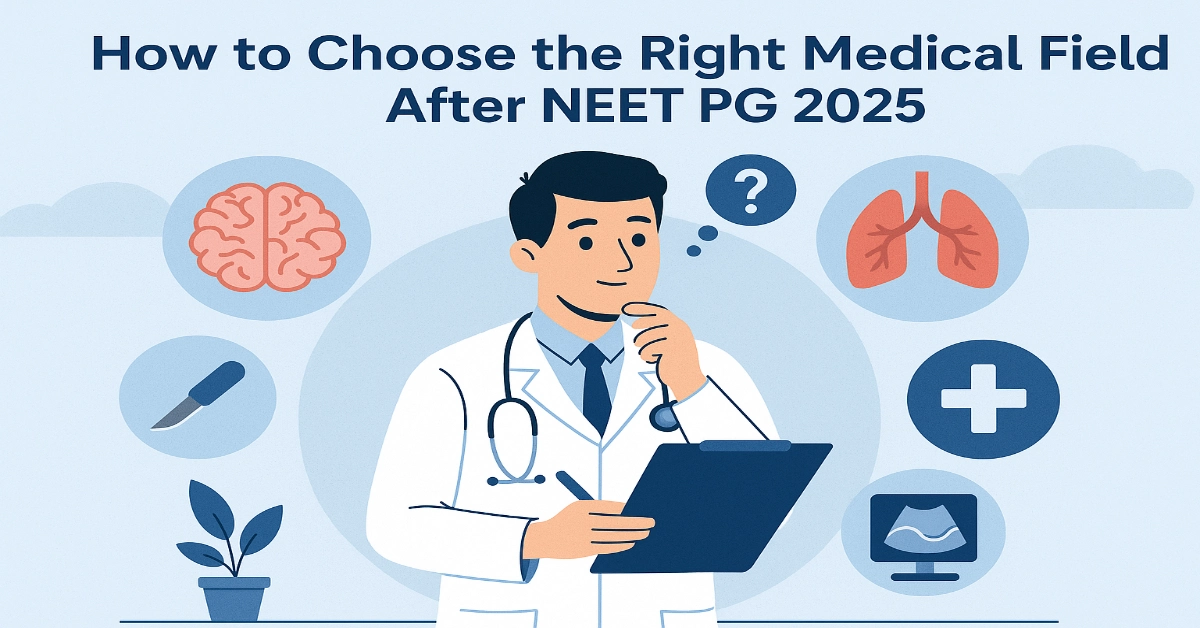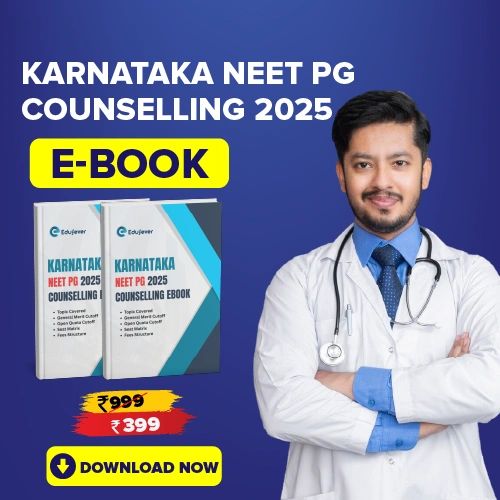The NEET PG exam is the gateway for MBBS graduates to enter postgraduate medical courses in India. Clearing the exam is just the first step in building a successful career. The next important task is deciding which medical field to pursue, a choice that can influence growth, satisfaction, and future opportunities. With options ranging from clinical and surgical to super-specialty and non-clinical areas, the decision can feel challenging.
This article provides a simple and practical guide to help NEET PG aspirants to choose a medical field that matches their interests, strengths, and career goals.
Importance Of Choosing the Right Field
The choice of a medical field is not just about personal interest, but also influences:
- Career Growth: The right specialty can offer higher demand, better pay scales, and global opportunities.
- Work-Life Balance: It is important to note that clinical fields like surgery may demand long hours, whereas fields like dermatology or pathology often provide more predictable schedules.
- Professional Satisfaction: The chosen field should align with your strengths and interests to ensure long-term fulfillment.
- Future Opportunities: The specialty you select can influence options for sub-specialization, research, teaching, and international practice.
Major Medical Fields Available Through NEET PG
NEET PG aspirants can pursue a wide range of fields, broadly categorized into clinical, surgical and non-clinical fields.
1. Clinical Specialties
These focus on diagnosing and treating patients in hospitals and clinics. The common options include:
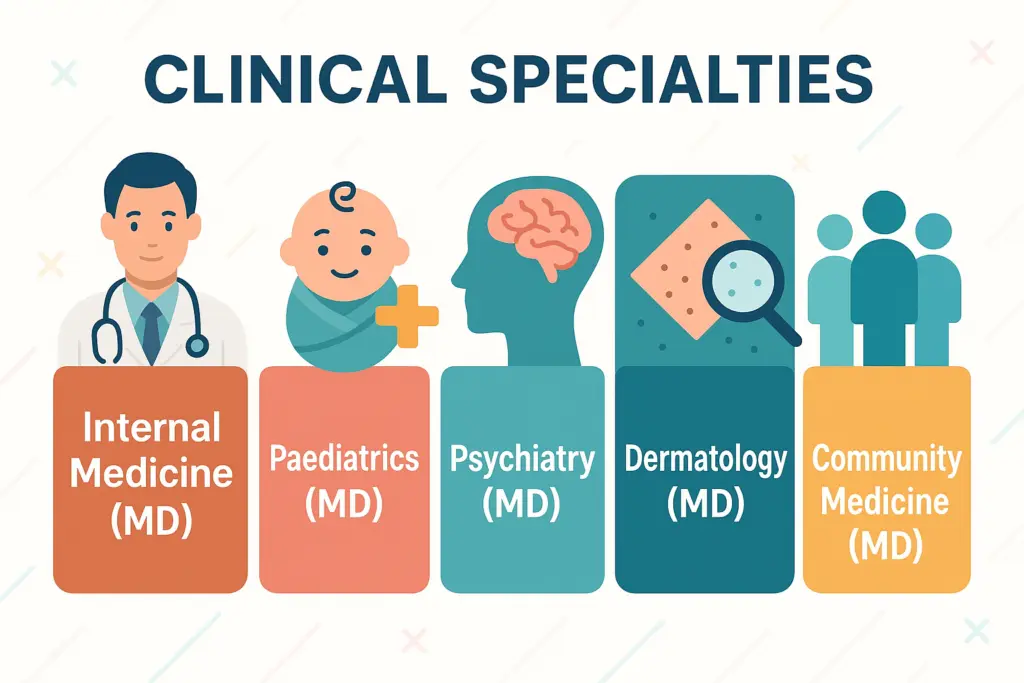
- Internal Medicine (MD): It focuses on comprehensive patient care and serves as the foundation for sub-specialties like cardiology, gastroenterology, or endocrinology.
- Paediatrics (MD): It deals with child health and development.
- Psychiatry (MD): It addresses mental health care, counselling, and therapy.
- Dermatology (MD): It covers skin, hair, and nail disorders, and often provides a better work-life balance.
- Community Medicine (MD): It emphasizes public health, preventive medicine, and epidemiology.
2. Surgical Specialties
These involve procedures, operations, and hands-on treatment. The key fields include:
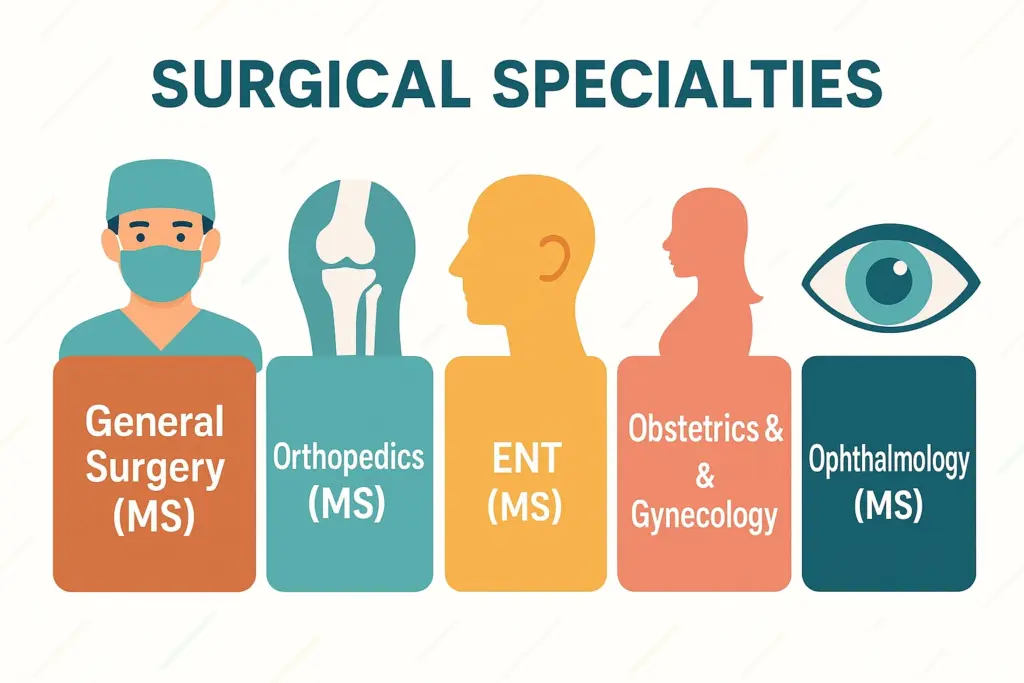
- General Surgery (MS): It provides broad-based surgical practice and serves as the foundation for sub-specialties like GI surgery or oncology.
- Orthopaedics (MS): It focuses on bones, joints, and musculoskeletal injuries.
- ENT (MS): It deals with ear, nose, and throat disorders.
- Obstetrics & Gynaecology (MD/MS): It covers women’s health, maternity, and reproductive care.
- Ophthalmology (MS): It involves eye care and surgeries.
3. Non-Clinical Specialties
These fields focus on research, academics, and diagnostics rather than patient interaction. The key fields include:
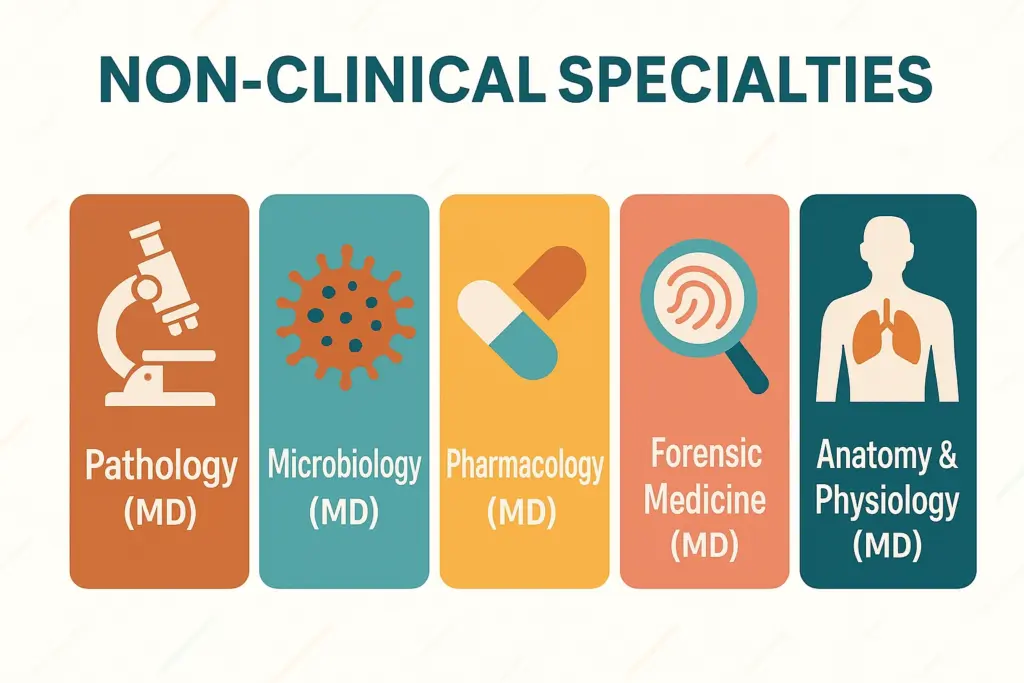
- Pathology (MD): It focuses on laboratory diagnosis of diseases.
- Microbiology (MD): It studies infections, microbes, and their medical significance.
- Pharmacology (MD): It deals with drug development, therapeutics, and research.
- Forensic Medicine (MD): It applies medical knowledge in medico-legal cases and criminal investigations.
- Anatomy & Physiology (MD): It emphasizes human body structure and functions, primarily in academic and teaching roles.
Emerging and High-Demand Specialties
These fields are gaining importance due to evolving healthcare needs:
| NEET PG Counselling Guide 2025 | |
|---|---|
| MCC NEET PG Counselling Guide eBook 2025 | 📥 Download |
| DNB Counselling Book 2025 | 📥 Download |
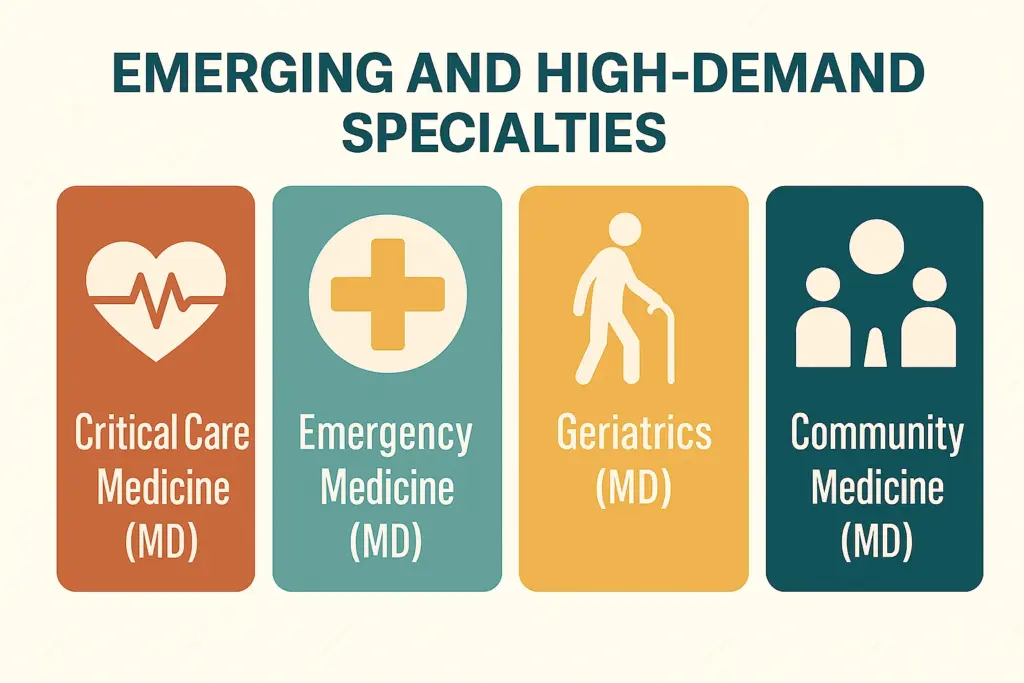
- Critical Care Medicine (MD): It addresses the rising demand in hospitals for intensive care specialists.
- Emergency Medicine (MD): It is becoming increasingly relevant due to trauma and accident care.
- Geriatrics (MD): It meets the growing need for specialists as India’s elderly population rises.
- Community Medicine (MD): It emphasizes preventive care and public health, especially after global pandemics.
Choosing such fields may offer less competition, unique career prospects, and global relevance.
Factors to Consider While Choosing a Field
Selecting a medical field requires careful consideration of several factors:
1. Personal Interest and Passion
- Identify subjects you enjoyed most during MBBS.
- Reflect on clinical postings where you felt confident and satisfied.
2. Lifestyle Considerations
- Surgical specialties often require longer working hours.
- Non-clinical fields may offer predictable schedules and less stress.
- Consider location preferences, on-call duties, and travel requirements.
3. Career Growth and Demand
- Fields like internal medicine, radiology, cardiology, and orthopaedics are in high demand globally.
- Niche specialties like psychiatry or community medicine may offer fewer opportunities but growing importance.
4. Salary and Financial Prospects
- Private hospitals may offer higher remuneration for surgical and high-demand specialties.
- Public health roles may provide stability, research grants, and teaching opportunities.
5. Competitiveness and NEET PG Cutoffs
- Highly competitive fields like dermatology, radiology, cardiology, and ophthalmology require top NEET PG scores.
- Less competitive specialties may offer more flexibility in college and location choice.
6. Long-Term Goals
- Consider whether you want to pursue super-specialization, research, or academia.
- Certain specialties allow for international practice and fellowship opportunities.
Steps to Make an Informed Decision
1. Self-Assessment
- List your interests, strengths, and preferred work environment.
- Take personality assessments if needed to understand your suitability for high-pressure or patient-facing roles.
2. Research
- Explore each specialty in detail, including scope, job roles, and lifestyle.
- Attend seminars, webinars, and specialty workshops to gain practical insights.
3. Consult Mentors
- Speak with experienced doctors, seniors, and faculty members about their experiences.
- Understand the pros and cons of each specialty from real-world perspectives.
4. Analyze NEET PG Trends
- Check previous years’ cutoffs, seat availability, and counselling trends.
- Identify which colleges offer your preferred specialty and the competition level.
5. Internship and Clinical Exposure
- Reflect on your internship experiences and electives.
- Identify areas where you felt confident, motivated, and satisfied.
6. Set Long-Term Goals
- Decide if you aim for clinical practice, research, teaching, or a combination.
- Align your specialty choice with future aspirations like fellowship or international opportunities.
Common Mistakes to Avoid
- Choosing a Specialty Based Only on Salary
- Money is important, but job satisfaction and passion are more sustainable in the long term.
- Following Peer Pressure
- Your career decisions should align with your skills and interests, not friends or family.
- Ignoring Work-Life Balance
- High-stress specialties may lead to burnout if not suited to your lifestyle preference.
- Neglecting Research and Academic Opportunities
- Specialties with strong research potential may open doors for international exposure and fellowships.
- Overlooking Counselling Strategy
- Some aspirants select their specialty without considering college preferences and seat availability, which may limit options during counselling.
How to Make an Informed Field Choice
- Rank Your Priorities
- List what matters most: interest, lifestyle, salary, demand, or research opportunities.
- Shortlist 3-5 fields
- Avoid making a decision on impulse; weigh multiple options.
- Seek Professional Guidance
- Counsellors and senior doctors can provide insights into niche fields
- Attend NEET PG Counselling Workshops
- Helps understand seat allocation trends, college rankings, and specialty preferences.
- Trust Your Instincts
- Ultimately, career satisfaction comes from choosing a specialty aligned with your passion and aptitude.
Choosing the right medical specialty after NEET PG 2025 is a critical career decision. It requires careful self-assessment, research, mentorship, and awareness of future healthcare trends. Balancing personal interests, lifestyle, competitiveness, and long-term goals will help aspirants make a choice that is not only rewarding professionally but also personally satisfying. With thoughtful planning and informed decisions, NEET PG graduates can build a successful and fulfilling medical career in their chosen specialty.
